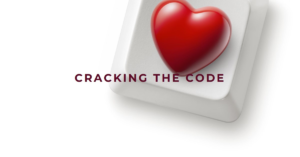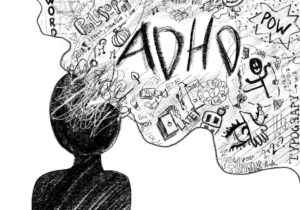
In today’s fast-paced world, many individuals find themselves grappling with depression and anxiety. These mental health challenges can significantly impact one’s quality of life, making it essential to seek effective solutions. One increasingly popular option is attending retreats designed specifically for depression and anxiety. These retreats offer a sanctuary for individuals to focus on their mental wellness, providing a holistic approach to healing. In this article, we will explore the benefits of retreats for depression and anxiety and why they are considered effective solutions for mental wellness.
Understanding Depression and Anxiety
Depression and anxiety represent prevalent mental health conditions impacting a significant number of individuals globally. These disorders are widespread and can affect people from all walks of life, irrespective of age, gender, or socioeconomic status.
Depression
Depression manifests through enduring feelings of sadness, hopelessness, and diminished interest or enjoyment in previously pleasurable activities. Additional symptoms may involve fluctuations in appetite, disruptions in sleep patterns, persistent fatigue, challenges with concentration, and contemplation of death or suicide. The condition often arises from a complex interplay of genetic, biological, environmental, and psychological factors.
Anxiety
Anxiety, on the other hand, involves excessive worry, fear, or apprehension about everyday situations. Symptoms may include restlessness, increased heart rate, rapid breathing, sweating, and difficulty concentrating. Anxiety disorders can manifest in various forms, such as generalized anxiety disorder, panic disorder, social anxiety disorder, and specific phobias.
The Role of Retreats in Mental Wellness
Mental health retreats offer a unique and effective approach to managing depression and anxiety. Unlike traditional therapy sessions, these retreats provide an immersive experience, allowing individuals to step away from their daily stressors and focus entirely on their mental health. Here are some key benefits of attending retreats for depression and anxiety:
1. Comprehensive Healing Approach
retreats for depression and anxiety typically adopt a holistic approach to healing. This means addressing the mind, body, and spirit to promote overall well-being. Various therapeutic modalities are often incorporated, such as:
Mindfulness and Meditation: Practices that help individuals stay present and reduce stress.
Yoga: A physical activity that combines movement, breathing, and meditation to enhance mental clarity and relaxation.
Nutritional Counseling: Guidance on a balanced diet to support mental health.
Art and Music Therapy: Creative outlets that allow for emotional expression and processing.
2. Professional Support
These retreats are often led by experienced mental health professionals, including psychologists, therapists, and counselors. Participants receive expert guidance and support, ensuring that they have access to the best practices and evidence-based treatments for managing their conditions.
3. Safe and Nurturing Environment
One of the most significant advantages of attending a retreat is the opportunity to heal in a safe and nurturing environment. Many retreats are located in serene, natural settings, such as mountains, forests, or near the ocean. These peaceful surroundings provide a calming atmosphere that is conducive to healing and self-reflection.
4. Community and Connection
Isolation can exacerbate symptoms of depression and anxiety. Retreats offer a sense of community, allowing participants to connect with others who are experiencing similar challenges. Sharing stories, struggles, and successes with peers can be incredibly therapeutic and help individuals feel less alone.
5. Structured Programs
Retreats provide structured programs that include daily schedules of therapeutic activities, workshops, and group sessions. This structure helps individuals establish routines, which can be beneficial for managing symptoms of depression and anxiety. It also ensures that participants make the most of their time at the retreat, engaging in activities that promote healing and growth.
Key Elements of Effective Retreats for Depression and Anxiety
When choosing a retreat for depression and anxiety, it is essential to consider certain elements that contribute to its effectiveness. Here are some key features to look for:
Personalized Treatment Plans
Effective retreats recognize that each individual’s experience with depression and anxiety is unique. Therefore, they offer personalized treatment plans tailored to meet the specific needs of each participant. This personalized approach ensures that individuals receive the appropriate interventions and support for their condition.
Evidence-Based Therapies
The best retreats utilize evidence-based therapies that have been proven effective in treating depression and anxiety. These may include:
Cognitive Behavioral Therapy (CBT): A form of psychotherapy that helps individuals identify and change negative thought patterns and behaviors.
Dialectical Behavior Therapy (DBT): A type of therapy that focuses on teaching coping skills to manage stress, regulate emotions, and improve relationships.
Acceptance and Commitment Therapy (ACT): A therapy that encourages individuals to accept their thoughts and feelings rather than fighting or feeling guilty for them.
Qualified and Compassionate Staff
The qualifications and demeanor of the retreat staff play a crucial role in the healing process. Look for retreats with licensed and experienced mental health professionals who are compassionate and dedicated to helping individuals achieve mental wellness.
Integration of Nature
Nature has a powerful impact on mental health. Many retreats are situated in natural environments that provide a tranquil setting for healing. Activities such as nature walks, hiking, and outdoor meditation can help reduce stress and promote a sense of peace and well-being.
Follow-Up Support
Healing from depression and anxiety is an ongoing process that extends beyond the duration of the retreat. Effective retreats offer follow-up support, such as continued therapy sessions, support groups, or online resources, to help individuals maintain their progress and cope with challenges that may arise after returning home.
Preparing for a Mental Wellness Retreat
Attending a retreat for depression and anxiety requires preparation to ensure a meaningful and beneficial experience. Here are some tips to help you prepare:
Set Clear Goals: Identify what you hope to achieve during the retreat. Setting clear, realistic goals can help you stay focused and motivated throughout the program.
Communicate Needs: Inform the retreat organizers of any specific needs or preferences you may have, such as dietary restrictions, medical conditions, or accommodations.
Pack Appropriately: Bring comfortable clothing suitable for physical activities and relaxation. Include personal items that help you feel at ease, such as a journal, favorite book, or meditation aids.
Stay Open-Minded: Be open to new experiences and therapeutic approaches. Healing is a journey, and being receptive to different methods can enhance your overall experience.
Build a Support System: Share your plans with trusted friends or family members who can provide support and encouragement during and after the retreat.
Conclusion
Retreats for depression and anxiety offer a powerful and effective solution for those seeking to improve their mental wellness. By providing a comprehensive healing approach, professional support, and a nurturing environment, these retreats help individuals manage their symptoms and embark on a journey toward recovery. If you or a loved one is struggling with depression or anxiety, consider exploring the benefits of attending a mental wellness retreat. With the right support and environment, it is possible to reclaim your joy and achieve lasting mental wellness.


























